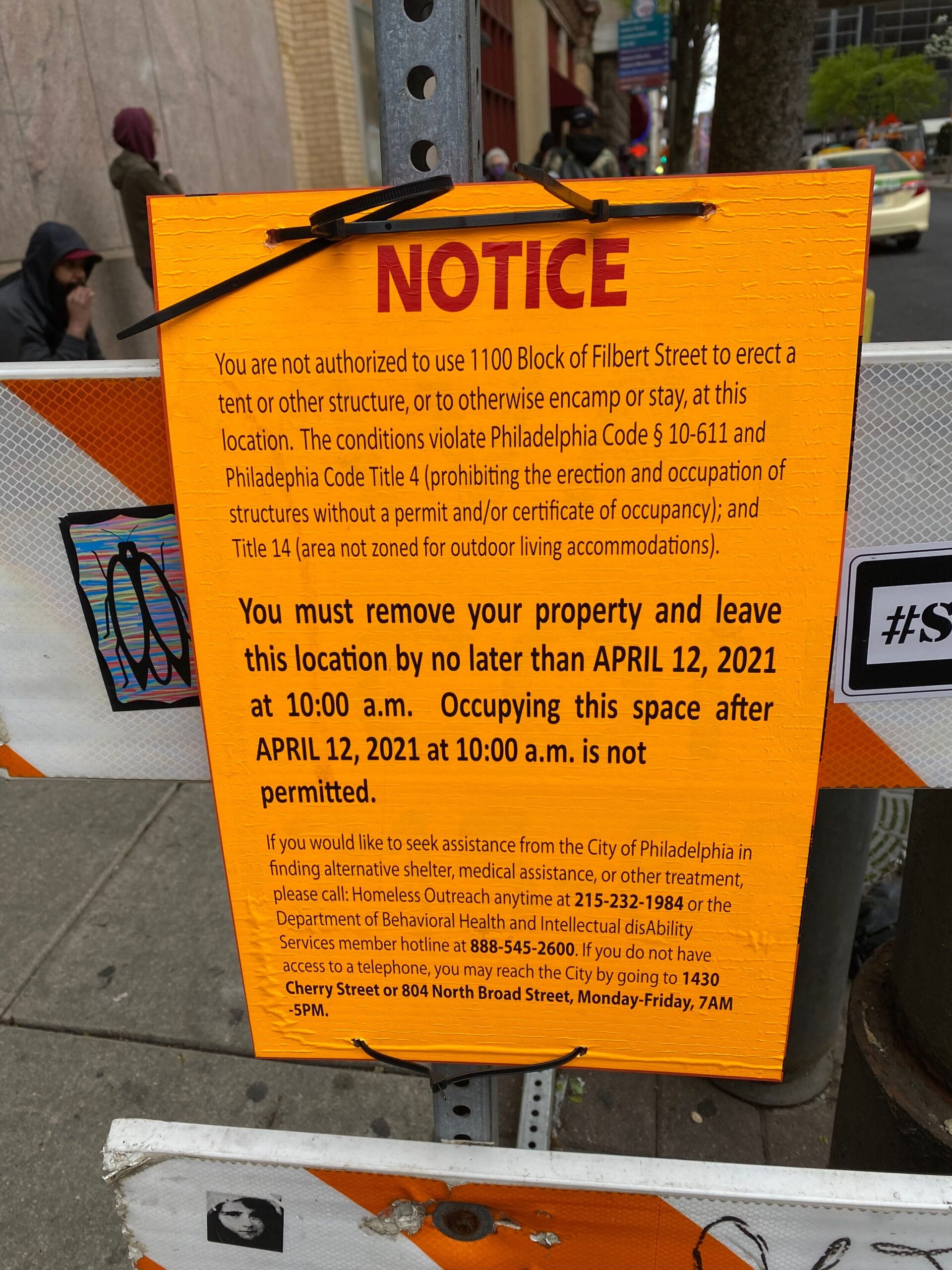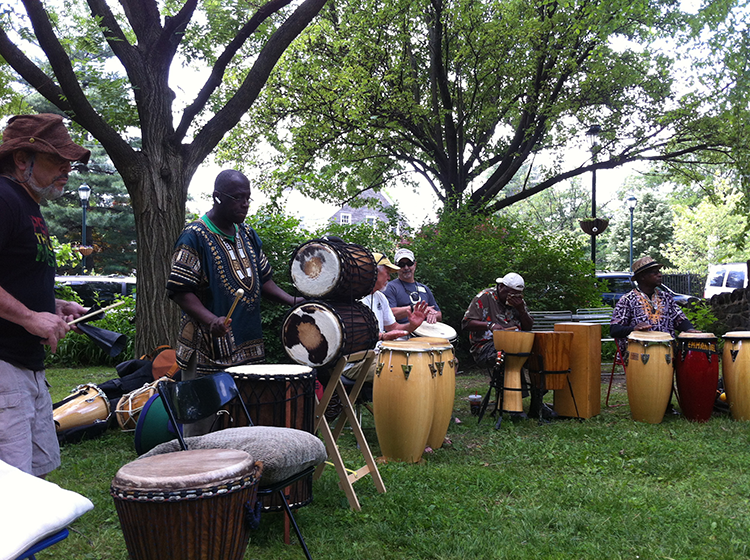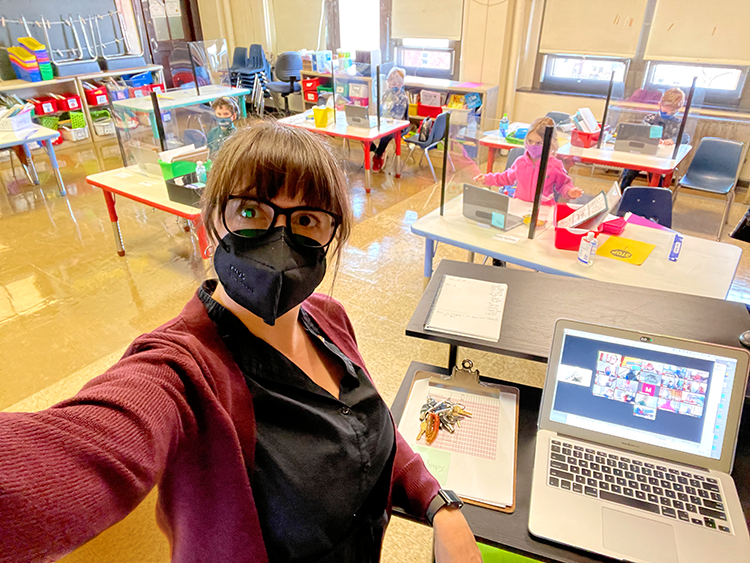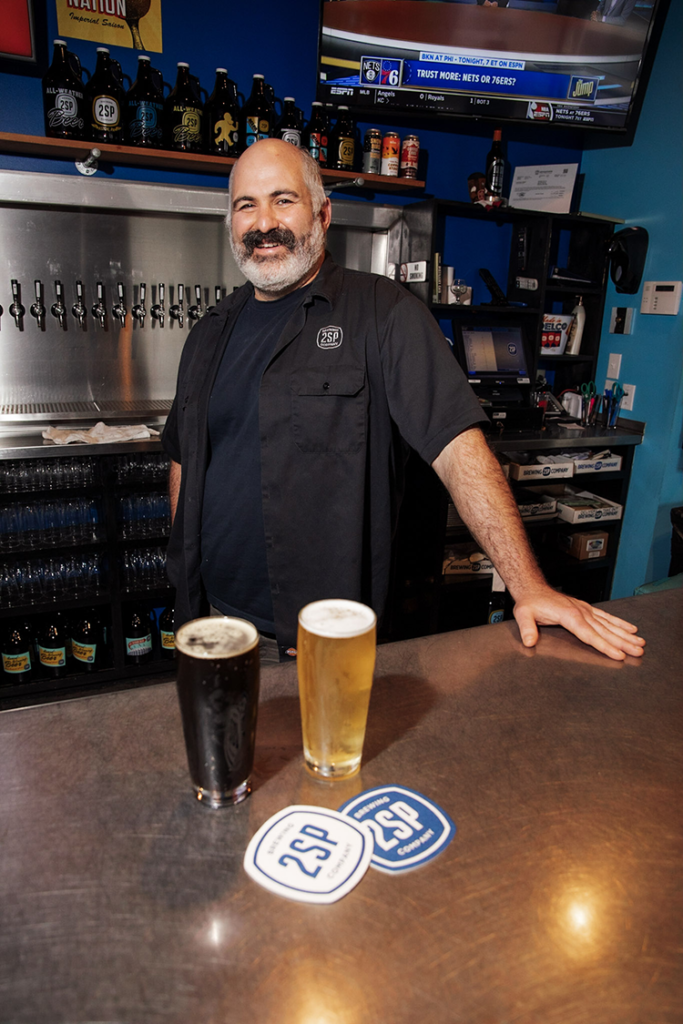Homeless encampments have been popping up around Center City like a game of whack-a-mole. From the Pennsylvania Convention Center, to the Benjamin Franklin Parkway, now to Reading Terminal Market and the SEPTA Locust Street underground.
Philadelphia’s unhoused continue to band together in small communities rather than relying on city services. As summer approaches and the fear of COVID-19 is waning, the city appears to be clearing areas where tourists congregate to keep unwitting visitors from beholding the severity of our housing crisis.
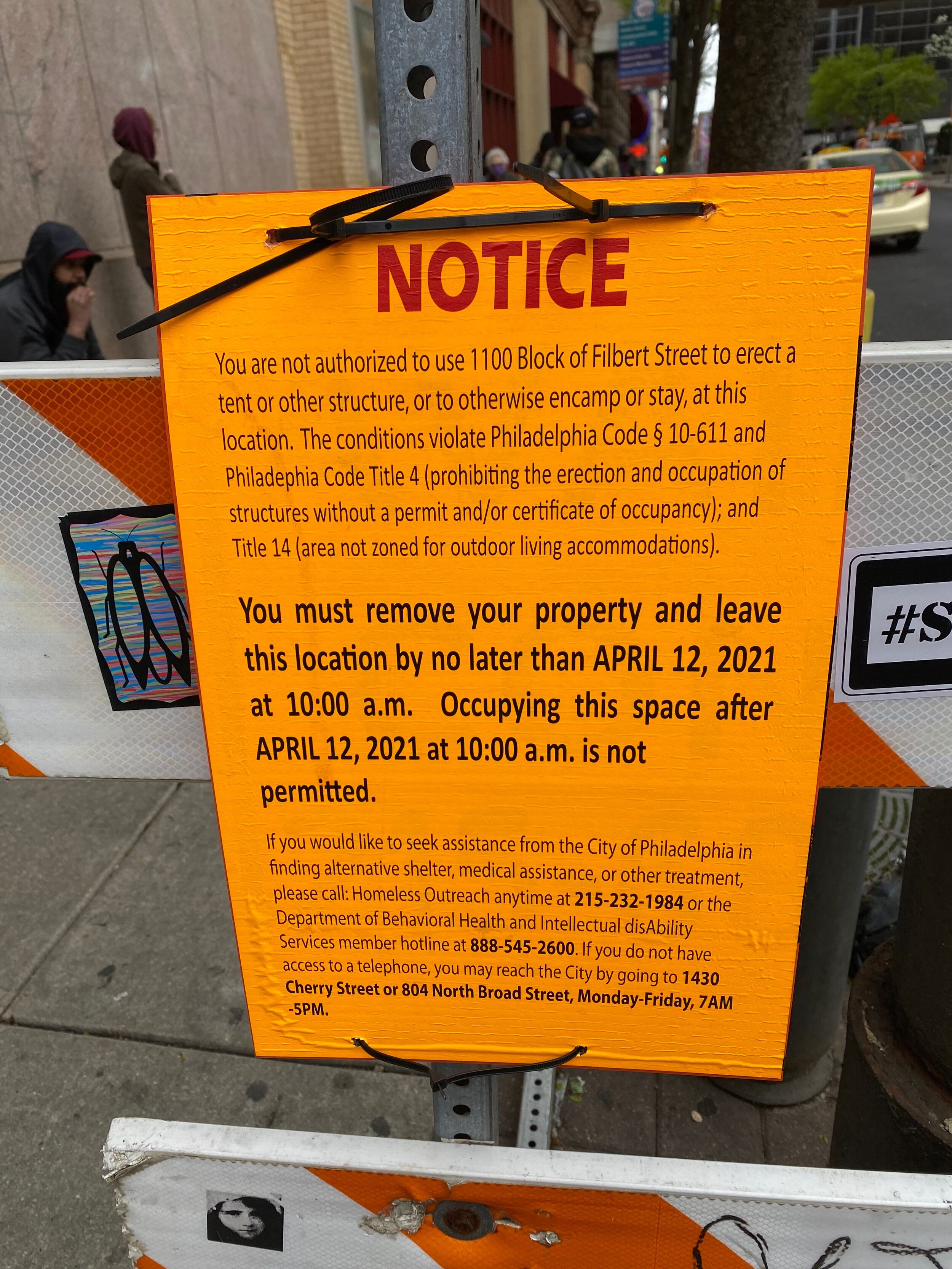
On Monday, April 12, access to Filbert Street between 11th and 12th streets was blocked by metal barricades and the presence of dozens of police officers, as the city dismantled an encampment of unhoused people located outside of the Reading Terminal Market.
Philadelphia Police were uncharacteristically vocal during the clearing of the encampment. One police officer jabbed at a protester, “Why aren’t you at work right now?”—to which the protestor responded, “I took off to protect them from you.”
Activists yelled from behind the police barricade that the day’s actions were only designed to further displace the unhoused. Jennifer Bennetch, founder of Occupy PHA and one of the negotiators on behalf of the unhoused regarding last year’s encampments along the Parkway and outside of the Philadelphia Housing Authority headquarters, was among the protestors.
“How many times are we going to do this? January, Vine Street. March, the Convention Center. April, Ionic Street. It’s the same people!” shouted Bennetch.
Philadelphia Police were uncharacteristically vocal during the clearing of the encampment. One police officer jabbed at a protester, “Why aren’t you at work right now?”—to which the protestor responded, “I took off to protect them from you.”
The encampment had been there for months, and while there is no verifiable count of people who were living there, it seemed to fluctuate between 15 and 20 people.
Of this group, only seven remained. The others, having seen the notices posted by the city that the encampment would be cleared, left in advance.
When asked where the unhoused would be taken, a police officer answered, “We were wondering that ourselves.”
Two were provided “traveler’s assistance,” aka a bus ticket, out of state: a 61 year-old man who identified himself as Doug and a 48 year-old woman named Selina Brunson. Brunson explained that she was headed to Sumter, South Carolina, to reconnect with family, but had no way of communicating with them, nor a plan of where she would stay.
Both Brunson and Doug had been living along Filbert Street for months, and had initially traveled to Philadelphia to find work. Doug talked at length about marine biology on the two occasions that Grid spoke with him. Brunson talked about her struggles to find work as someone who was formerly incarcerated.
Dave Holloman, chief of staff for the Office of Homeless Services, explained that they were executing what they call an “encampment resolution.”
“Today what we do is work with the homeless, provide storage help, help them pack up. We have a number of different outreach teams here. There’s about five different agencies that are out here helping and doing transport services.”
As we spoke, five of the seven people decided to accept the city’s offers; the two who had not were Brunson and Doug. Holloman confirmed that the five individuals who accepted services will go to the “couples shelter placement, Safe Haven, and traditional shelters.”
According to Holloman, none of the possessions of the unhoused would be discarded without their permission, and storage for their items would be provided for up to 35 days. “If they need more than that, we are able to help secure additional time,” Holloman said.
What if people do not want to leave, Grid asked Holloman.
“We strongly encourage them [to leave],” Holloman said. “This is about the sixth or seventh encampment resolution and so we have a pretty good success rate of getting people to go … We are strongly hoping that people accept services.”
Holloman was adamant that this was not a “sweep,” a term used to describe the forceful eviction of the unhoused from where they have set up camp.
“There’s been a lot of misinformation about sweep[s]. This is called a service day. And so service day is a service-led approach. We have partnered with law enforcement as a safety for everybody, not just for the staff that work and also for people who are living in those areas. We provide notices to individuals, let them know that we are coming to clean the area. They have the option to leave … trash, but we do not take their personal belongings. I have been a part of many conversations that have been about sweeps, not in Philadelphia, but nationally, and this is not a sweep.”
“I can’t believe they are saying that,” said Bennetch in a correspondence afterward. “They posted notices saying people will receive citations from police if they don’t leave. They barricaded residents in, and people who were there to help them, out. There were … how many cops?
“It was a sweep,” Bennetch continued. “Anytime you close an encampment and prevent people from returning … that’s a sweep. The city does not like to refer to it as a sweep or an eviction or a displacement or anything else that might convey a negative perception. It’s a public relations issue for them. They feel it is important to uphold the image that they are doing something humane and caring.”
Signs placed from 12th and Market to 12th and Filbert streets point to the clearing of the encampment being just one piece of a larger downtown beautification project. The same signage placed at Filbert Street to warn about the eviction of the encampments could be found on Market Street where the unhoused frequently sleep in the summer.
One police officer said, “Do you think that the owners of that Marriott want these people here?”


